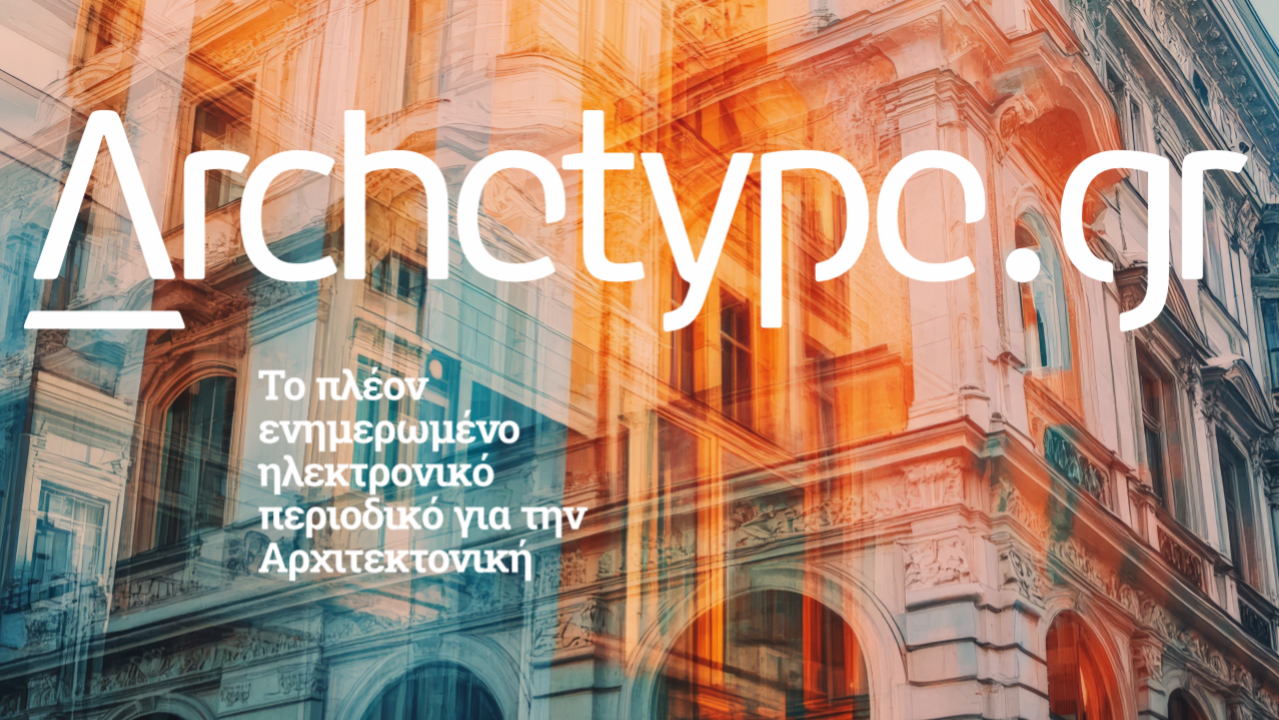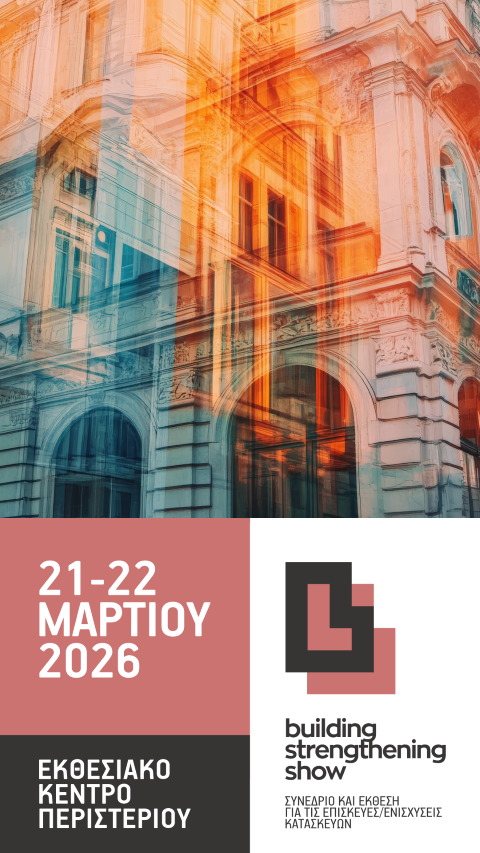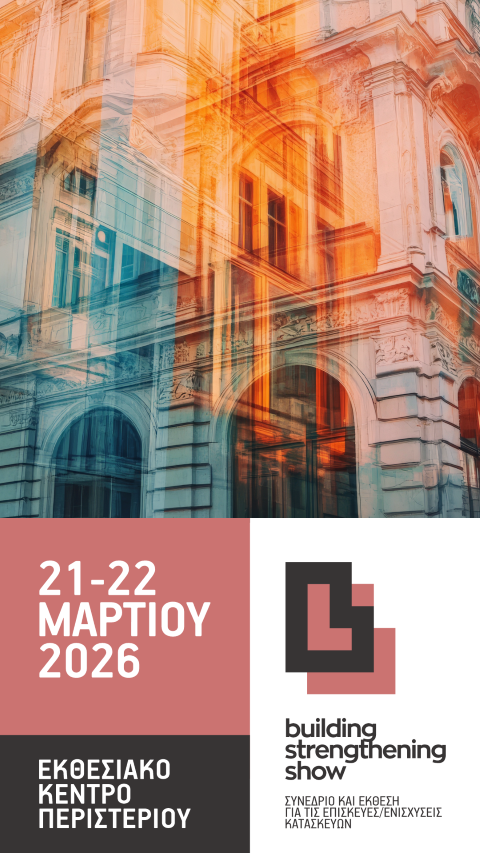
ΕΓΓΡΑΨΟΥ
για να λαμβάνεις τα νέα του Archetype στο email σου!
Thank you!
You have successfully joined our subscriber list.

The 21st century began with great promise filled with ambition, optimism, and dreams of a better future. Now, twenty-five years later, we stand at a crossroads. Humanity has achieved remarkable feats: exploring distant planets, transforming healthcare, and advancing artificial intelligence and robotics. But we ’ve also lived through defining global events, shifts that have tested our societies and systems. Our urban spaces have grown denser and more chaotic, while rural areas have faded into obscurity, taking with them the spirit of entire communities. Deep-rooted challenges still persist, often ignored. As we look ahead, the time has come to rethink how we live, to reset what no longer serves us, and to act, before irreversible damage is done.
The world today is experiencing unprecedented demographic growth and consequent urbanization of various places. Rapid population growth in urban areas usually gets coupled with poor planning of physical and social infrastructure along with a lack of individual and communal sanitary consciousness. The rural areas in many developing countries face a lot of problems caused by poor sanitation facilities such as pollution of water sources, a high rate of waterborne diseases, and high expenditures on curative health care.
Open defecation and urination are still rampant in urban and rural areas of developing economies and such practices pose a grave risk to the health of the citizens. The World Health Organization and UNICEF link open defecation with grim issues such as poverty, malnutrition, child mortality and large disparities between the rich and poor.
Around the world, around 3.5 million people die because of inadequate water, sanitation and hygiene each year. Poor sanitation is believed to be the main cause of almost 50% of these deaths. Owing to the dire importance of communal sanitation and hygiene, there is an urgent need to develop an integrated approach concerning the development of public health services.
OPPORTUNITY
The Little Big Loo-Rethinking Public Toilets invites ideas that can be used to disrupt the perception of public toilets with the most innovative and efficient solution for this serious issue plaguing our future. This necessary public utility is to be designed in a way that changes the overall outlook towards public washrooms.
The designed area can be recreational, educational, orsocial, a space that creates value for the community surrounding it. The space should be visualized as a prime component in the making of a community that develops holistically; a community that is competent in social, economic and educational terms. “We shall not defeat any of the infectious diseases that plague the developing world until we have also won the battle for safe drinking water, sanitation, and basic health care.” -Kofi Annan Nobel Peace Prize laureate, Secretary-General of the United Nations 1996-2006.
CHALLENGE
Participants should unlearn how a conventional public toilet looks like and design an innovative, functional and visually appealing design that serves as a building icon, synchronizing with the surrounding context.
The primary use of the designed structure should be as a public toilet. Alongside this, the structure should be innovatively designed as a space for community interaction, in addition to its primary function. The space should be additionally visualized as a recreational/ educational/social/ urban functional area.
The total area of the space should not exceed 150 sq.mt. All age groups of the demography should be able to use the space.
The additional space aspect of the toilet should add value to society and the site’s context. The design should be efficient in terms of planning, hygiene, odour-free surroundings and space usage. The designed toilet should be accessible, comfortable/ convenient to use.
The design intervention should be aimed to address the efficiency of public restrooms, their sanitary facilities, spatial distribution and mainly, privacy and comfort, which ultimately improve peoples’ lives.
The design can act as a module, which can be replicated in different areas similar to the site context chosen. The design should be capable of catering a footfall of 250-500 people.
“Sanitation is more important than independence.” - Mahatma Gandhi (Indian nationalist leader)
SITE SELECTION
Participants can select a site in an urban OR a rural context. There can be an emphasis on deprived locations, irrespective of the site being in an urban or rural area.
The site should be carefully placed to accommodate the number of footfalls (circulation in transit hours must be considered). It must be justified with the need for sanitation services.
AWARDS
Prizes of total USD 4500, broken down as follows:
1st Prize: USD 2000 + Certificate + Publication
2nd Prize: USD 1200 + Certificate + Publication
3rd Prize: USD 800 + Certificate + Publication
Student Award: USD500 + Certificate + Publication
10 Honourable mentions: Certificates
Winners and Honourable Mentions will be published on Volume Zero website and several international architecture and design magazines. To show our appreciation, all the participants will receive a participation certificate.
SCHEDULE
Early Bird Registrations: 18th June 2025 to 22nd August 2025
Standard Registrations: 23rd August 2025 to 3rd October 2025
Last day for queries: 26th September 2025
Closing date for Submissions: 30th October 2025
Announcement of winners: 23rd December 2025
ELIGIBILITY
Little Big Loo 2025 – Architecture Competition is open to all. We invite architects, students, engineers, product designers, thinkers, companies, organizations, and everyone interested in the mission of the competition to submit their ideas. No professional qualifications are necessary.
To join this competition, register on: https://bit.ly/40dCsMV
REGISTRATION FEES
Early Bird Registrations:
Participants from India – 2700+18% GST = INR 3186 (per team)
Participants from Other Countries - 80 + 18% GST = USD 94.4 (per team)
Standard Registrations:
Participants from India – 3200+18% GST = INR 3776 (per team)
Participants from Other Countries – 95+18% GST = USD 112.1 (per team)


Archetype team - 27/02/2026
Χριστίνα Ιωακειμίδου - 25/02/2026
Κακούλης Ιωάννης - 23/02/2026
 ΟΛΑ ΤΑ ΤΕΥΧΗ
SUBSCRIBE
ΟΛΑ ΤΑ ΤΕΥΧΗ
SUBSCRIBE
Μπορείς να καταχωρήσεις το έργο σου με έναν από τους τρεις παρακάτω τρόπους: